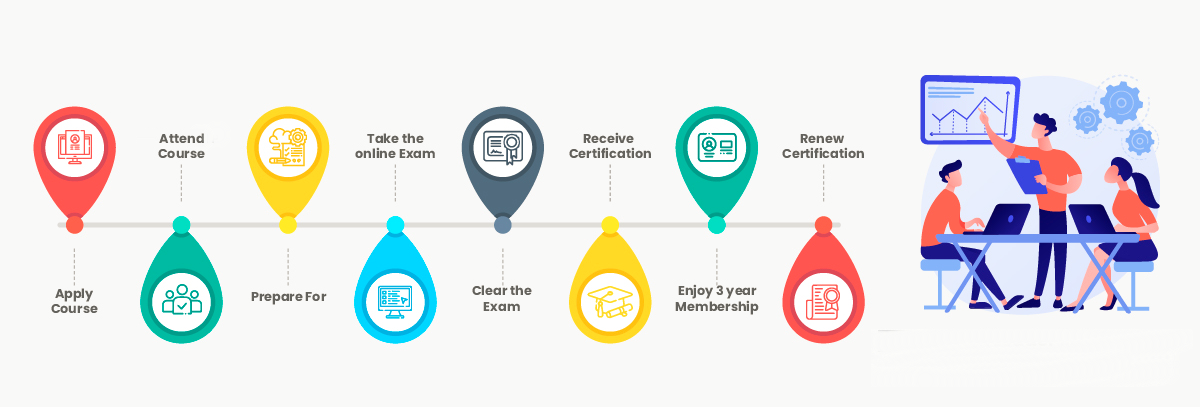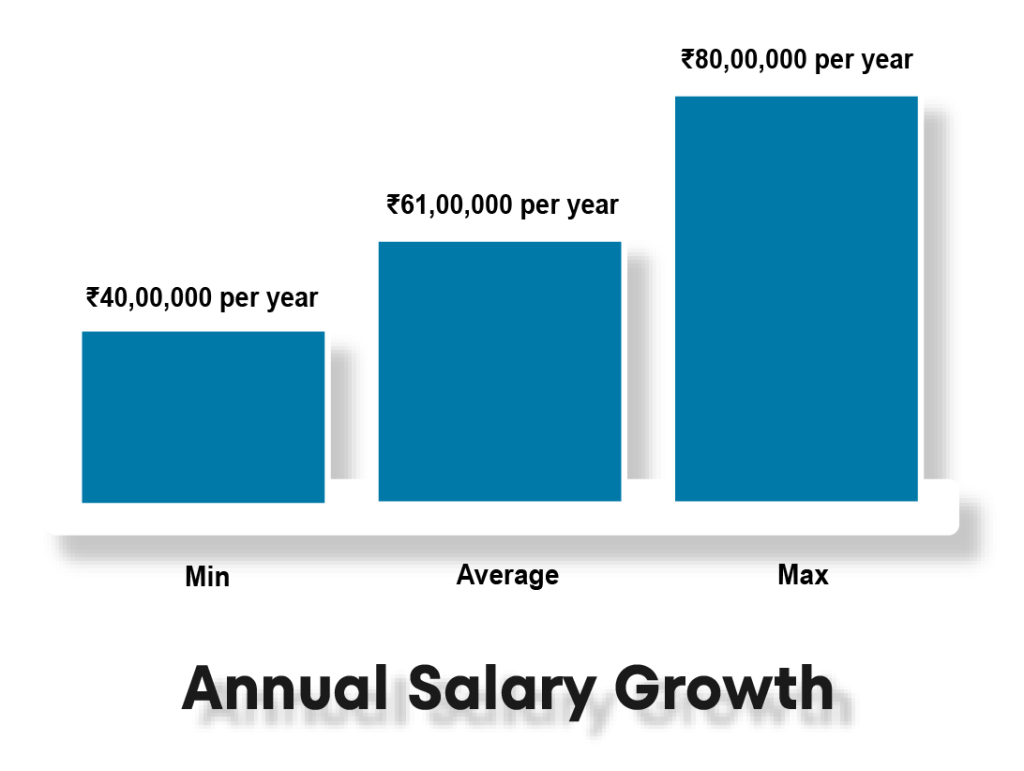
Sambodhi and Education Nest’s Research Methodology training offers a comprehensive overview of the entire research process, guiding participants on how to design, conduct, and document effective scientific research projects. The course covers crucial topics such as formulating research problems, designing research methods, selecting samples, and writing research proposals. Participants will also learn how to collect, process, analyze, and present data in a simplified manner. Additionally, the course provides step-by-step guidance on writing clear and compelling research reports. Led by an ingenious trainer, this training ensures participants gain expertise in the field of research methodology. The trainer’s expertise and guidance will help participants understand the key fundamentals of research methodology and successfully apply them in their own research endeavors.
Application Deadline: Aug 11, 2023
First 25 Participants Get Up To 40% OFF – Enroll Now Today
Upskill for Your Dream Job
Sambodhi and Education Nest offer a comprehensive Research Methodology Training Course designed to equip participants with essential skills and knowledge. With a focus on practical application, the course features live project-based training, providing hands-on experience in research design, data collection, analysis, and interpretation. Participants have the opportunity to learn from industry experts with over 10 years of experience in the field. Our instructors have developed unique teaching styles to help aspiring candidates master the skills and knowledge required to excel in research. Through interactive sessions, case studies, and real-world examples, participants gain a deep understanding of research methodologies, critical thinking, and problem-solving abilities. This training course empowers individuals to become competent researchers and enhances their career prospects in academia, market research, consulting, and other related fields.



Instructor-led Research Methodology live online Training Schedule
May 15th – Weekend
August 19th – Weekend
Why enroll for Research Methodology Certificate Training Course?


Market research analysts and marketing specialists were projected to experience a 20% growth in employment from 2018 to 2028, which is much faster than the average for all occupations.

MNCs often have dedicated research and analytics teams where Research Methodology professionals are integral to driving evidence-based strategies and decision-making processes.

The average salary for a Research Methodology professional in the United States ranged from $50,000 to $100,000 per year.
Research Methodology Training Course Benefits
The Research Methodology training course offered by Sambodhi and Education Nest provides numerous benefits. Participants gain a comprehensive understanding of research methodologies, allowing them to design and execute high-quality research projects. The course equips learners with essential skills such as data collection, analysis, and interpretation. They also develop critical thinking and problem-solving abilities necessary for conducting effective research. Additionally, participants receive guidance from experienced instructors who provide valuable insights and industry-relevant knowledge. Overall, this training programme prepares individuals to become competent researchers and enhances their career prospects in various fields.

Annual Salary

Hiring Companies
Want to become a Research Methodology Professional.
Why Research Methodology Certificate Training Course from Education Nest






Research Methodology Program Outcome
Research Methodology Training Course Syllabus
Research Methodology Training Description
The Research Methodology course is a comprehensive program designed to equip participants with the essential skills and knowledge required for conducting effective research. This course offers in-depth training in research design, data collection, analysis, and interpretation. Participants learn various research methodologies and gain hands-on experience through practical exercises and case studies. The course focuses on enhancing critical thinking and problem-solving abilities, enabling individuals to make informed decisions and draw accurate conclusions from research findings. Taught by experienced instructors, this course provides a solid foundation for individuals aspiring to excel in research-based professions or academic pursuits.
The objectives of the Research Methodology course are as follows:
By achieving these objectives, participants will be equipped with the necessary skills and knowledge to conduct rigorous and impactful research in their respective fields.
Learning a Research Methodology course offers several benefits, including:
By acquiring research methodology skills, you can unlock numerous opportunities for personal, academic, and professional growth, enabling you to make a significant impact in your chosen field.
The course is designed for working professionals passionate about understanding about the nitty gritty of research in depth.
B-Schools, Engineering & other HEIs Students (currently pursuing as well as pass outs), Industry Professionals, Consultants and Government officials working or aspiring to work in the Research sector.
The pre-requisites for the Business Analyst course may include:
It’s important to note that the pre-requisites may vary, so it is advisable to check the specific requirements of the Research Methodology course you are interested in pursuing.
Sambodhi and Education Nest offer a range of popular courses for the Public Sector, including:
Project Management Professional (PMP): This course equips professionals with the knowledge and skills required to manage projects effectively, ensuring successful outcomes within the public sector.
Corporate Social Responsibility (CSR): The CSR course focuses on understanding and implementing sustainable practices, social impact assessment, stakeholder engagement, and strategic planning in the context of corporate social responsibility initiatives.
Theory of Change: This course explores the theory of change framework, providing participants with a deep understanding of how to design and implement effective programs and interventions in the public sector.
Monitoring and Evaluation: This course focuses on building skills in monitoring and evaluation techniques, enabling professionals to assess program effectiveness, measure impact, and make data-driven decisions for public sector projects.
These courses offered by Sambodhi and Education Nest cater to the specific needs and demands of the public sector, providing professionals with valuable knowledge and skills to excel in their roles and contribute to impactful and sustainable development initiatives.
The Research Methodology course is a comprehensive program designed to equip participants with the essential skills and knowledge required for conducting effective research. This course offers in-depth training in research design, data collection, analysis, and interpretation. Participants learn various research methodologies and gain hands-on experience through practical exercises and case studies. The course focuses on enhancing critical thinking and problem-solving abilities, enabling individuals to make informed decisions and draw accurate conclusions from research findings. Taught by experienced instructors, this course provides a solid foundation for individuals aspiring to excel in research-based professions or academic pursuits.
The objectives of the Research Methodology course are as follows:
By achieving these objectives, participants will be equipped with the necessary skills and knowledge to conduct rigorous and impactful research in their respective fields.
Learning a Research Methodology course offers several benefits, including:
By acquiring research methodology skills, you can unlock numerous opportunities for personal, academic, and professional growth, enabling you to make a significant impact in your chosen field.
The course is designed for working professionals passionate about understanding about the nitty gritty of research in depth.
B-Schools, Engineering & other HEIs Students (currently pursuing as well as pass outs), Industry Professionals, Consultants and Government officials working or aspiring to work in the Research sector.
The pre-requisites for the Business Analyst course may include:
It’s important to note that the pre-requisites may vary, so it is advisable to check the specific requirements of the Research Methodology course you are interested in pursuing.
Sambodhi and Education Nest offer a range of popular courses for the Public Sector, including:
Project Management Professional (PMP): This course equips professionals with the knowledge and skills required to manage projects effectively, ensuring successful outcomes within the public sector.
Corporate Social Responsibility (CSR): The CSR course focuses on understanding and implementing sustainable practices, social impact assessment, stakeholder engagement, and strategic planning in the context of corporate social responsibility initiatives.
Theory of Change: This course explores the theory of change framework, providing participants with a deep understanding of how to design and implement effective programs and interventions in the public sector.
Monitoring and Evaluation: This course focuses on building skills in monitoring and evaluation techniques, enabling professionals to assess program effectiveness, measure impact, and make data-driven decisions for public sector projects.
These courses offered by Sambodhi and Education Nest cater to the specific needs and demands of the public sector, providing professionals with valuable knowledge and skills to excel in their roles and contribute to impactful and sustainable development initiatives.
Research Methodology Training Course Reviews
Read learner testimonials
Diana J. P.
I highly recommend the Research Methodology course by Sambodhi and Education Nest. As someone who had no clue about research, I have gained a lot just in the first chapter. The course introduced me to the various types of research, which I had no idea about. The content is informative, and the explanations are clear and easy to understand. It's a great course for beginners looking to build a solid foundation in research methodology.
Andrew R.
The instructor of the course is not only friendly but also adept at making the course engaging and practical. They go beyond the theoretical aspects and generously share their personal experiences, which proves to be extremely valuable. Their insights and anecdotes add depth and practicality to the course, making it more relatable and applicable. The instructor's approachable nature and willingness to share their experiences create a conducive learning environment, fostering a positive and enriching educational experience for the participants.
Elizabeth K.
It was a detailed and very comprehensive course. The curriculum and content is best in class. The case studies and training tool templates are good to follow for practice and project work. The trainers and online sessions are interactive, engaging, and enjoyable. Best online course attended. Thanks to Sambodhi and Education Nest
Hear from our learners
Lorem ipsum dolor sit amet, consectetur adipiscing elit. Ut elit tellus, luctus nec ullamcorper mattis, pulvinar dapibus leo.
Lorem ipsum dolor sit amet, consectetur adipiscing elit. Ut elit tellus, luctus nec ullamcorper mattis, pulvinar dapibus leo.
Lorem ipsum dolor sit amet, consectetur adipiscing elit. Ut elit tellus, luctus nec ullamcorper mattis, pulvinar dapibus leo.
Like what you hear from our learners?
Creating Epic Presentations: Communicating Powerful Ideas reviews
Research Methodology Training FAQs
If you miss an online Research Methodology Training class, it’s important to reach out to the instructor or the support team of the online training platform you are using. They may be able to provide you with a recording or transcript of the missed class, so that you can catch up on what you missed. Alternatively, some platforms offer on-demand access to class materials, so you can go back and review the content on your own time. It’s always a good idea to try and make up the missed material as soon as possible, so that you don’t fall behind in your learning.
If you have queries after completing an online Research Methodology Training course, Education Nest training platforms offer some form of post-course support. This may include access to a dedicated support team, a community forum where you can ask questions and connect with other learners, or even one-on-one sessions with an instructor or coach. If you have specific questions or concerns related to the course material, you can reach out to the instructor directly or use the support channels provided by the platform. It’s always a good idea to clarify any doubts or questions you may have, as this will help to solidify your understanding of the material and ensure that you can apply what you’ve learned in a real-world context.
Research Methodology refers to the systematic and organized approach used to conduct research, gather data, analyze information, and draw conclusions. It encompasses the principles, techniques, and procedures employed in research studies to ensure rigor, validity, and reliability of the findings. Research Methodology involves various stages, including defining research objectives, selecting appropriate research design, determining the data collection methods, analyzing data using statistical or qualitative techniques, and interpreting the results. It provides a framework for researchers to plan, execute, and evaluate their studies systematically, ensuring that research findings are credible, replicable, and contribute to the existing body of knowledge in a specific field or discipline.
The timing of when you get access to learning content after signing up for an online Research Methodology Training course will depend on the specific training platform you are using. In most cases, you should receive access to the learning content immediately upon signing up, or shortly after your payment has been processed. Some platforms may require you to complete an enrolment process or set up an account before you can access the content. It’s always a good idea to check the specific details of the course or platform you are using, as the timing and process may vary. If you are experiencing any issues accessing the learning content, you should contact the support team of the training platform for assistance.
Once you enrol in Research Methodology Training course, you will typically have access to the course material for as long as the course remains available on the platform. This means that you can revisit the material at any time, even after you have completed the course, and continue to learn and improve your skills. The benefit of lifetime access to the learning material is that it allows you to learn at your own pace and on your own schedule. You can review the content as many times as you need to fully understand the concepts and techniques covered in the course. Additionally, if you encounter a new challenge in your work or personal life, you can go back to the course material to find solutions and strategies to help you overcome the challenge. Having access to course material for a lifetime is a valuable benefit, as it allows you to continue to improve your skills and knowledge long after you have completed the course. So, if you are interested in improving your Communication skill, build confidence and want the flexibility to learn at your own pace, consider enrolling in Research Methodology Training course that offers lifetime access to the learning material.
If you miss an online Research Methodology Training class, it’s important to reach out to the instructor or the support team of the online training platform you are using. They may be able to provide you with a recording or transcript of the missed class, so that you can catch up on what you missed. Alternatively, some platforms offer on-demand access to class materials, so you can go back and review the content on your own time. It’s always a good idea to try and make up the missed material as soon as possible, so that you don’t fall behind in your learning.
If you have queries after completing an online Research Methodology Training course, Education Nest training platforms offer some form of post-course support. This may include access to a dedicated support team, a community forum where you can ask questions and connect with other learners, or even one-on-one sessions with an instructor or coach. If you have specific questions or concerns related to the course material, you can reach out to the instructor directly or use the support channels provided by the platform. It’s always a good idea to clarify any doubts or questions you may have, as this will help to solidify your understanding of the material and ensure that you can apply what you’ve learned in a real-world context.
Research Methodology refers to the systematic and organized approach used to conduct research, gather data, analyze information, and draw conclusions. It encompasses the principles, techniques, and procedures employed in research studies to ensure rigor, validity, and reliability of the findings. Research Methodology involves various stages, including defining research objectives, selecting appropriate research design, determining the data collection methods, analyzing data using statistical or qualitative techniques, and interpreting the results. It provides a framework for researchers to plan, execute, and evaluate their studies systematically, ensuring that research findings are credible, replicable, and contribute to the existing body of knowledge in a specific field or discipline.
The timing of when you get access to learning content after signing up for an online Research Methodology Training course will depend on the specific training platform you are using. In most cases, you should receive access to the learning content immediately upon signing up, or shortly after your payment has been processed. Some platforms may require you to complete an enrolment process or set up an account before you can access the content. It’s always a good idea to check the specific details of the course or platform you are using, as the timing and process may vary. If you are experiencing any issues accessing the learning content, you should contact the support team of the training platform for assistance.
Once you enrol in Research Methodology Training course, you will typically have access to the course material for as long as the course remains available on the platform. This means that you can revisit the material at any time, even after you have completed the course, and continue to learn and improve your skills. The benefit of lifetime access to the learning material is that it allows you to learn at your own pace and on your own schedule. You can review the content as many times as you need to fully understand the concepts and techniques covered in the course. Additionally, if you encounter a new challenge in your work or personal life, you can go back to the course material to find solutions and strategies to help you overcome the challenge. Having access to course material for a lifetime is a valuable benefit, as it allows you to continue to improve your skills and knowledge long after you have completed the course. So, if you are interested in improving your Communication skill, build confidence and want the flexibility to learn at your own pace, consider enrolling in Research Methodology Training course that offers lifetime access to the learning material.
Be future ready, start learning